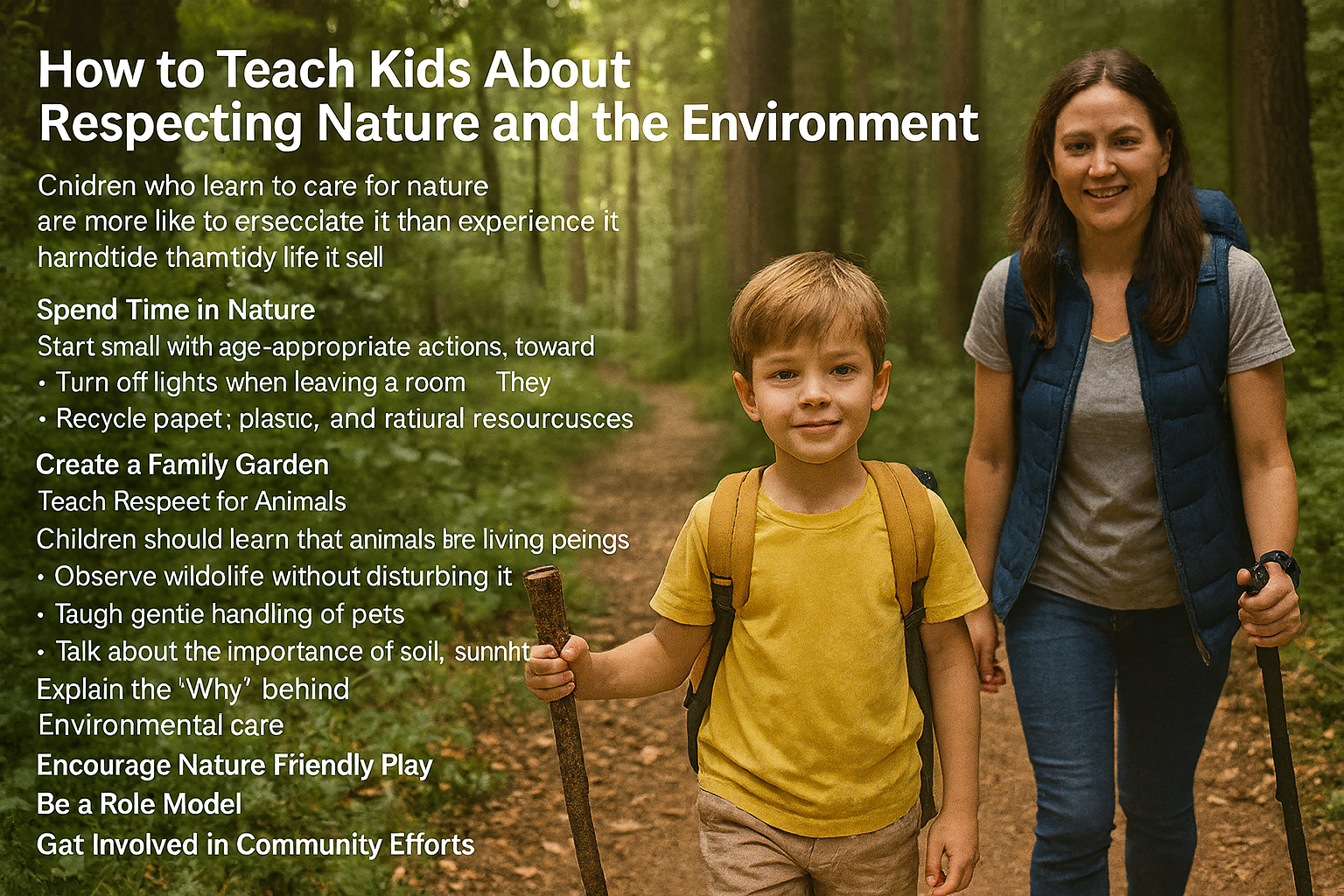Raising children who respect nature is one of the best gifts you can give the future. From the food we eat to the air we breathe, our planet sustains us. Teaching kids to care for the environment not only protects the Earth but also helps them develop responsibility, empathy, and gratitude.
Here’s how to nurture a love and respect for nature in your child’s daily life.
Why Teaching Environmental Respect Matters
Children who learn to care for nature are more likely to:
- Develop a sense of responsibility and stewardship
- Appreciate the beauty and value of natural resources
- Practice sustainable habits as adults
- Show empathy for all living things
- Feel connected to the world around them
Respect for nature is respect for life itself.
Spend Time in Nature
Children are more likely to care for the environment if they experience it firsthand.
- Go on family walks, hikes, or bike rides
- Visit parks, beaches, or nature reserves
- Encourage free play outdoors—climbing, exploring, observing wildlife
The more time they spend outside, the stronger their bond with nature becomes.
Teach Simple Eco-Friendly Habits
Start small with age-appropriate actions:
- Turn off lights when leaving a room
- Recycle paper, plastic, and cans
- Use reusable bottles and bags
- Save water by turning off taps while brushing teeth
Small daily actions build lifelong habits.
Create a Family Garden
Gardening teaches kids where food comes from and why plants matter.
- Plant vegetables, herbs, or flowers together
- Assign them small responsibilities like watering or harvesting
- Talk about the importance of soil, sunlight, and pollinators
Gardening makes environmental care tangible and fun.
Teach Respect for Animals
Children should learn that animals are living beings, not toys.
- Observe wildlife without disturbing it
- Teach gentle handling of pets
- Read books and watch documentaries about animals
Empathy for animals strengthens respect for all forms of life.
Explain the “Why” Behind Environmental Care
Kids are more motivated when they understand the reasons.
- “We recycle to keep the Earth clean.”
- “We plant trees because they give us oxygen.”
- “We turn off water because other people need it too.”
Connecting actions to outcomes makes lessons meaningful.
Encourage Nature-Friendly Play
Not all play needs to involve screens or plastic toys. Encourage:
- Building forts from natural materials
- Collecting rocks, leaves, or shells (without harming ecosystems)
- Drawing or writing about their outdoor experiences
Play deepens appreciation for the natural world.
Be a Role Model
Show your child that you care about the environment too.
- Pick up trash on walks
- Use reusable products
- Choose eco-friendly options when possible
Your example teaches them that caring for nature is part of everyday life.
Get Involved in Community Efforts
Join local cleanups, tree-planting events, or environmental groups as a family. Children who see their community working together for nature feel empowered to make a difference.
Final Thought: Raising Earth-Friendly Kids
Teaching children to respect nature isn’t about overwhelming them with rules—it’s about showing them the beauty of the Earth and their role in protecting it.
By spending time outdoors, modeling eco-friendly habits, and making nature part of everyday life, you’re helping your child grow into a responsible, caring steward of the planet.
Because when kids learn to love the Earth, they’ll naturally want to protect it.
